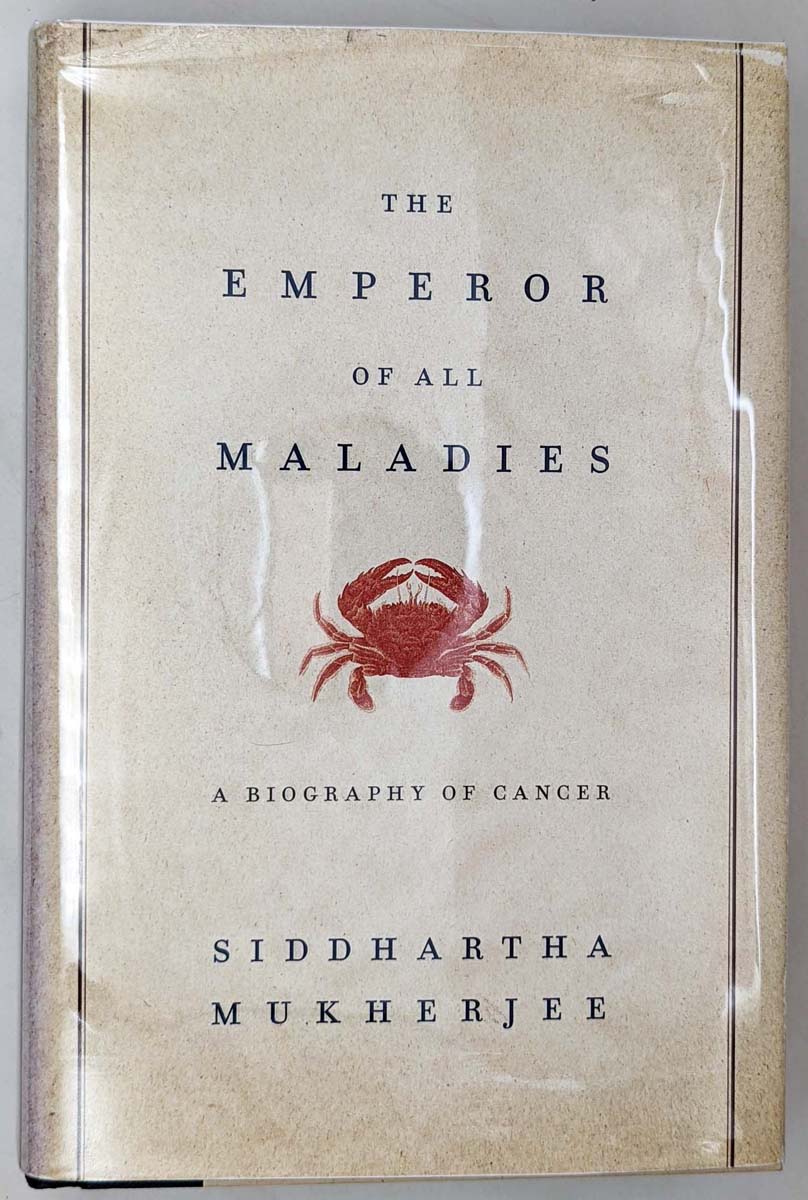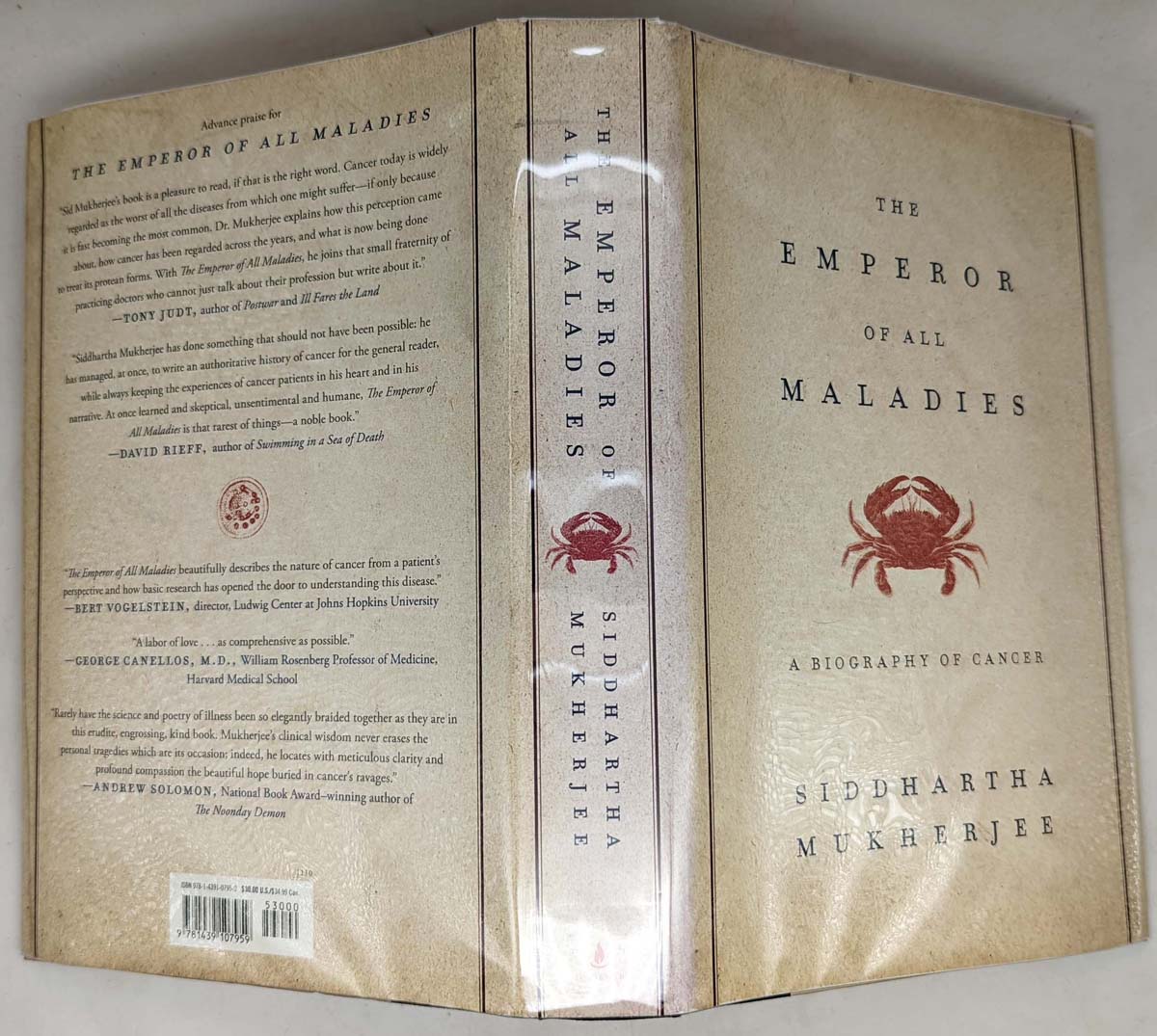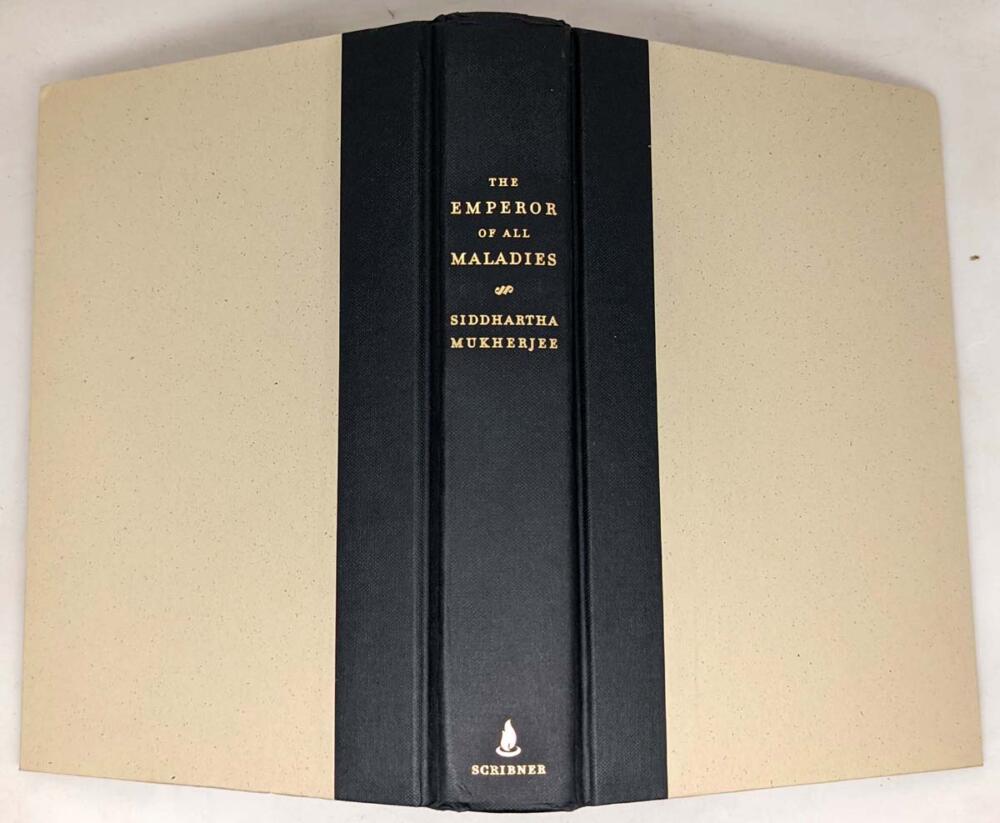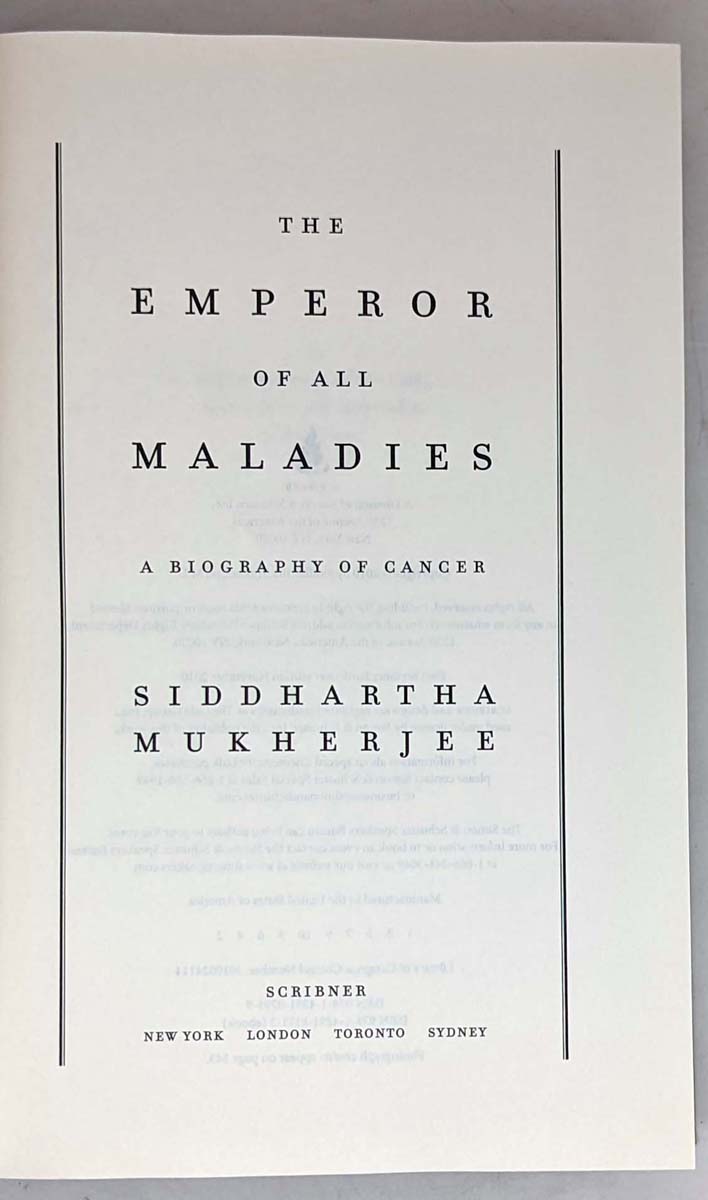The Emperor of All Maladies: A Biography of Cancer (2010) by Siddhartha Mukherjee is a monumental work that chronicles the epic history of humanity’s battle with cancer, weaving together science, medicine, and deeply human stories into what the author calls “an attempt to enter the mind of this immortal illness.” This Pulitzer Prize-winning volume—equal parts medical history, scientific thriller, and philosophical meditation—traces cancer’s first documented appearances in ancient Egyptian papyri through the brutal early treatments (like 19th-century radical mastectomies performed without anesthesia) to the dawn of targeted therapies. Mukherjee, an oncologist and researcher, structures the narrative as a biographical portrait, giving the disease agency and character while never losing sight of its human cost.
The 2010 Scribner first edition, with its stark white cover bisected by a single red stripe (echoing blood cells under a microscope), became an instant classic of science writing. Early printings are prized for their unrevised content, particularly the harrowing chapter on Sidney Farber’s early chemotherapy trials with terminally ill children—passages that some later editions softened. What elevates this beyond standard medical history is Mukherjee’s literary craftsmanship: patient stories unfold with novelistic depth, laboratory breakthroughs read like suspense narratives, and the centuries-long quest for understanding becomes a profound reflection on mortality itself.














